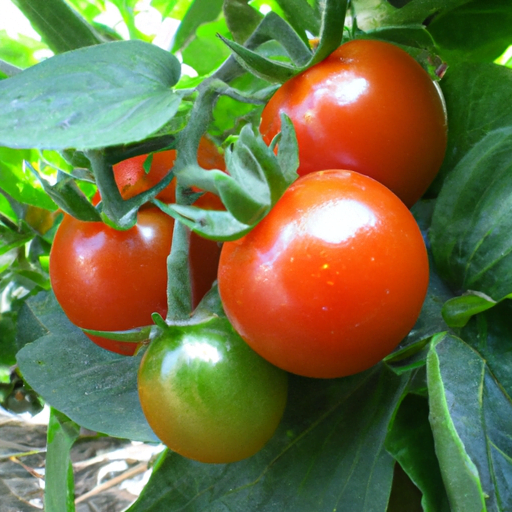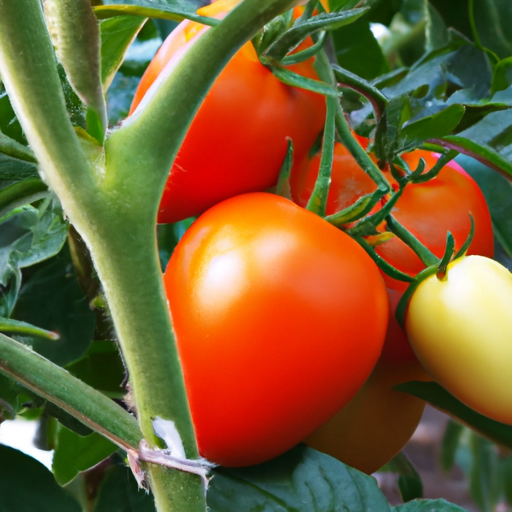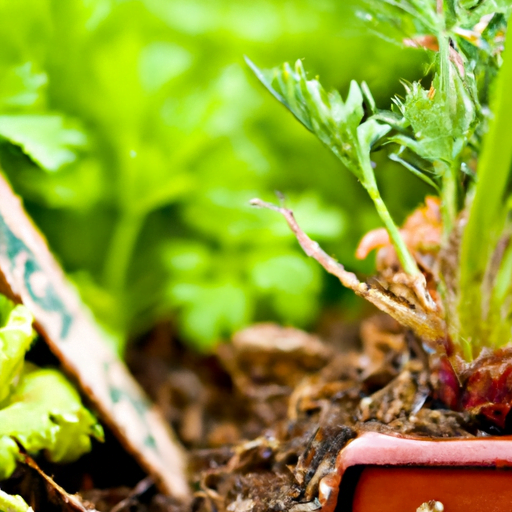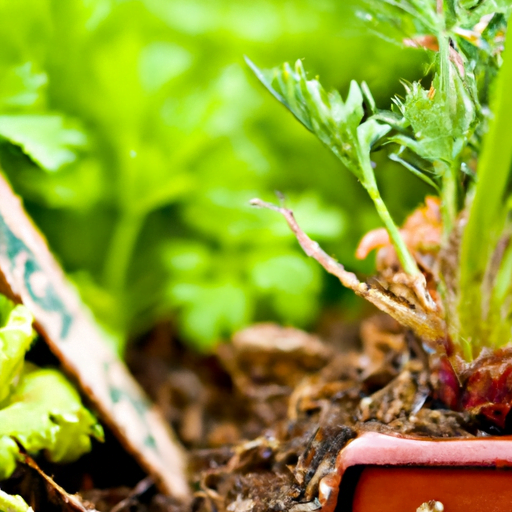Have you ever thought about living off the grid? It’s a lifestyle that more and more people are embracing these days. But here’s the thing – if you want to be self-sufficient and grow your own food, you need to know which vegetables are worth growing. You don’t have unlimited space, right? So, let’s dive into the 10 most worth growing vegetables for living off-grid and discover how you can become a self-sustaining gardener!
First up, let’s talk about tomatoes. They are an absolute must-have in any off-grid garden. Not only are they versatile and packed with nutrients, but they are also incredibly easy to grow. Whether you go for cherry tomatoes or beefsteak tomatoes, you’ll have a bountiful harvest to enjoy all summer long. Plus, they can be canned, frozen, or made into sauces and pastes for long-term storage.
Next on the list are leafy greens like spinach and lettuce. These veggies are not only delicious in salads but can also be cooked, juiced, or added to sandwiches and wraps. The best part is that they grow rapidly, so you can have a continuous supply of fresh greens throughout the growing season. You can even grow them indoors during the colder months, making them perfect for year-round consumption.
Now let’s talk about root vegetables. Carrots, beets, and radishes are some of the most worth growing when you’re living off-grid. They are low maintenance and have a long shelf life when stored properly. Plus, they can be enjoyed in various ways – roasted, steamed, or even turned into pickled delights. Not only will these root veggies provide you with essential vitamins and minerals, but they’ll also add color and flavor to your meals.
These are just a few of the 10 most worth growing vegetables for living off-grid. In our article, we’ll cover more exciting options like peppers, zucchini, and herbs. We’ll also provide tips on how to maximize your harvest and store your veggies for the long term. So, get ready to dive into the world of off-grid gardening and start your journey towards self-sufficiency! Living off-grid has become increasingly popular in recent years, as more people are seeking a more sustainable and self-sufficient lifestyle. The benefits of living off-grid are numerous, ranging from reduced reliance on outside resources to lower utility bills. Additionally, growing your own vegetables off-grid not only provides a sustainable food source but is also cost-effective and allows you to enjoy fresh, nutritious produce. In this article, we will explore the top 10 most worth growing vegetables for living off-grid, as well as the factors to consider for off-grid vegetable gardening.

Benefits of Living Off-Grid
Reduced reliance on outside resources
One of the primary benefits of living off-grid is the reduced reliance on outside resources. By generating your own power through alternative energy sources such as solar panels or wind turbines, you can become less dependent on traditional power grids. This not only helps to reduce your carbon footprint but also provides greater energy independence.
Lower utility bills
Living off-grid can also lead to significantly lower utility bills. By utilizing renewable energy sources, you can greatly reduce or eliminate your monthly electricity costs. Additionally, being off-grid means you no longer have to pay for services such as water and sewerage, further reducing your overall expenses.
Increased self-sufficiency
Living off-grid promotes self-sufficiency by providing you with the opportunity to grow your own food, including vegetables. By cultivating your own vegetables, you can reduce your reliance on grocery stores and have a constant supply of fresh produce at your fingertips. This self-sufficiency not only allows you to live a more sustainable lifestyle but also provides a sense of satisfaction and connection to the food you consume.
Importance of Growing Vegetables
Sustainable food source
Growing your own vegetables off-grid provides a sustainable food source. With concerns over conventional agriculture’s environmental impact, many individuals are turning to organic and locally grown produce. By growing your own vegetables, you can ensure that your food is free from harmful pesticides and chemicals and contribute to a more environmentally friendly food system.
Cost-effective
Growing vegetables off-grid can also be cost-effective. Once you have established your vegetable garden, the ongoing costs are minimal. You no longer have to spend money on store-bought vegetables, saving you a significant amount of money in the long run. Additionally, you have the opportunity to save seeds from your harvest, reducing the need to purchase new seeds every growing season.
Access to fresh, nutritious produce
Perhaps one of the most significant benefits of growing vegetables off-grid is the access to fresh, nutritious produce. When you grow your own vegetables, you have control over what goes into your food, ensuring that it is free from harmful additives and preservatives. Additionally, freshly harvested vegetables retain more nutrients compared to store-bought produce, which may have spent days or even weeks in transit.

Factors to Consider for Off-Grid Vegetable Gardening
Before diving into off-grid vegetable gardening, there are several factors to consider to ensure successful growth and a bountiful harvest.
Climate and growing season
The climate you live in plays a crucial role in determining the types of vegetables you can successfully grow off-grid. Some vegetables thrive in cooler climates, while others require warmer conditions. Understanding your local climate and the average growing season will help you select the most suitable vegetables for your off-grid garden.
Soil quality and composition
Healthy soil is essential for the successful growth of vegetables. Before planting, it is important to assess the quality and composition of your soil. Testing the pH level and adding organic matter or amendments can improve soil fertility and provide the necessary nutrients for your crops.
Water availability and conservation
Water is a valuable resource, especially when living off-grid. Assessing the availability of water on your property is crucial for planning your vegetable garden. Implementing water conservation techniques such as mulching and drip irrigation can help minimize water usage and ensure your vegetables receive adequate hydration.
Top 10 Most Worth Growing Vegetables
Now let’s dive into the top 10 most worth growing vegetables for living off-grid. These vegetables have been chosen based on their ease of cultivation, nutritional value, and versatility in culinary use.
1. Tomatoes
Tomatoes are a popular choice for off-grid vegetable gardening due to their versatility in culinary use. Whether used in salads, sauces, or sandwiches, tomatoes add a burst of flavor to any dish. They are also high in essential vitamins and antioxidants, making them a nutritious addition to your off-grid diet. Tomatoes are highly resilient plants that can thrive in various climates, making them ideal for off-grid gardeners.
2. Potatoes
Potatoes are a staple crop for off-grid living, thanks to their high caloric value and long storage life. They require minimal care and maintenance, making them an excellent choice for beginner off-grid gardeners. Potatoes can be cooked in a variety of ways, from mashed to roasted, providing a versatile and filling food source.
3. Cucumbers
Cucumbers are a refreshing vegetable that offers hydration support due to their high water content. They are perfect for off-grid living, as they can be eaten fresh or used in pickling and salads. Cucumbers also have a cooling effect, making them an excellent addition to summer dishes.
4. Lettuce
Lettuce is a leafy green vegetable that is quick to grow and provides a continuous harvest. It is packed with vitamins and minerals, making it an nutritious addition to your off-grid diet. Lettuce is ideal for salads and sandwiches, adding a crisp and refreshing element to your meals.
5. Carrots
Carrots are not only delicious but also rich in beta-carotene, which is essential for maintaining healthy vision. They have a long storage life, allowing you to enjoy them throughout the year. Carrots can be eaten raw, added to stir-fries, or used in soups and stews.
6. Zucchini
Zucchini is a versatile vegetable that can be used in a variety of dishes. It can be sautéed, grilled, or added to bread and cake recipes for a healthy twist. Zucchini plants are high-yielding and relatively easy to grow, making them a top choice for off-grid vegetable gardening.
7. Bell peppers
Bell peppers come in a variety of colors and add vibrant flavor to meals. They can be eaten raw, roasted, or used in stir-fries, salads, and stuffed pepper recipes. Bell peppers are rich in vitamins A and C, providing you with essential nutrients while living off-grid.
8. Beans
Beans are a versatile crop that can be grown both for their fresh pods and dried seeds. They are an excellent source of protein and fiber, making them a valuable addition to any off-grid diet. Beans can be incorporated into soups, stews, and even used in salads and dips.
9. Herbs
Herbs such as basil, cilantro, and rosemary are a great addition to an off-grid vegetable garden. They not only add flavor to your dishes but also have various health benefits. Herbs can be grown in pots or directly in the ground and require minimal care. Fresh herbs can add a burst of flavor to salads, marinades, and homemade sauces.
10. Spinach
Spinach is a leafy green vegetable that is easy to grow and packed with vitamins and minerals. It is a quick-growing crop, allowing for continuous harvesting throughout the growing season. Spinach can be used in salads, sautéed as a side dish, or added to smoothies for an extra dose of nutrients.

Conclusion
Growing your own vegetables off-grid provides numerous benefits, including reduced reliance on outside resources, lower utility bills, and increased self-sufficiency. By selecting the most worth growing vegetables based on your preferences and climate, you can enjoy the satisfaction of self-sufficiency and the delicious taste of fresh produce. So, roll up your sleeves, start planting, and reap the rewards of off-grid vegetable gardening.




